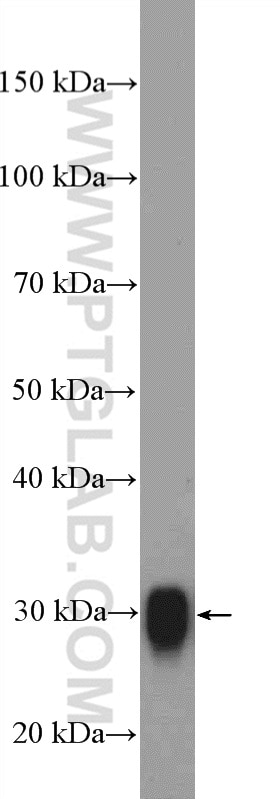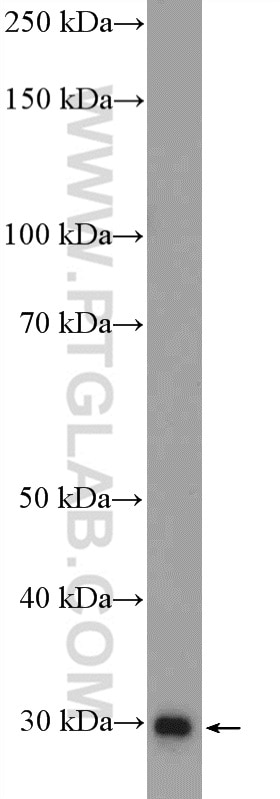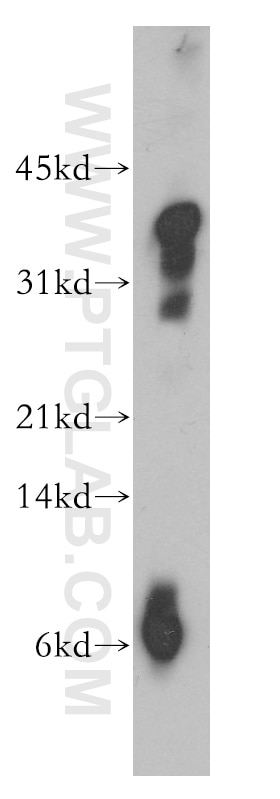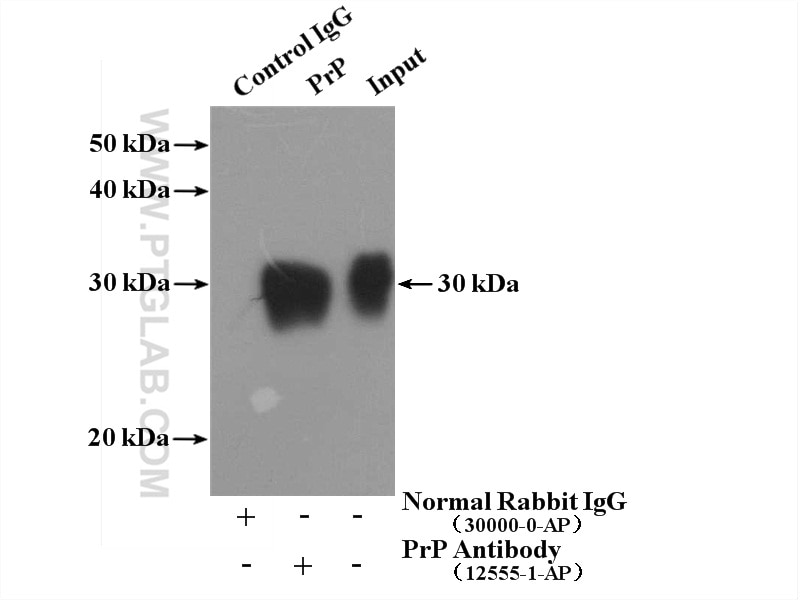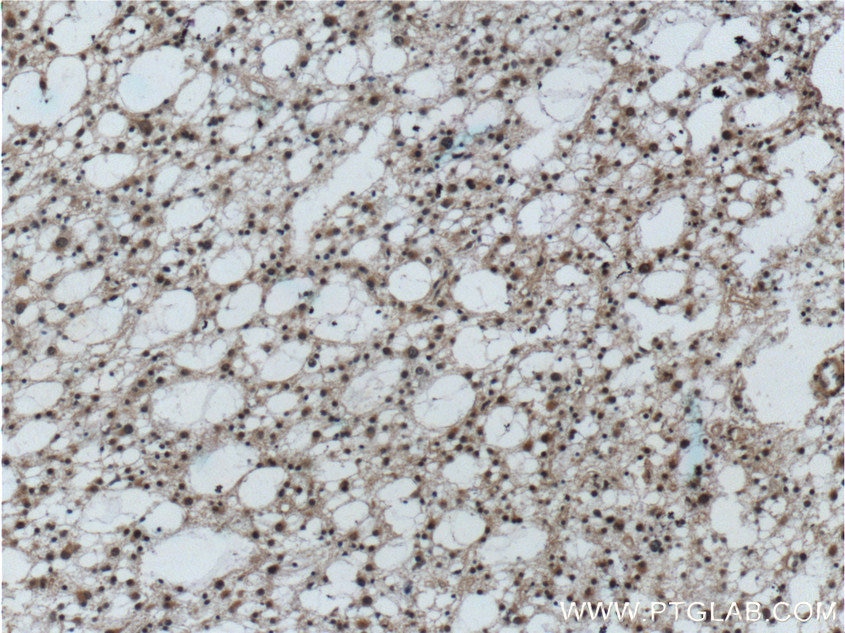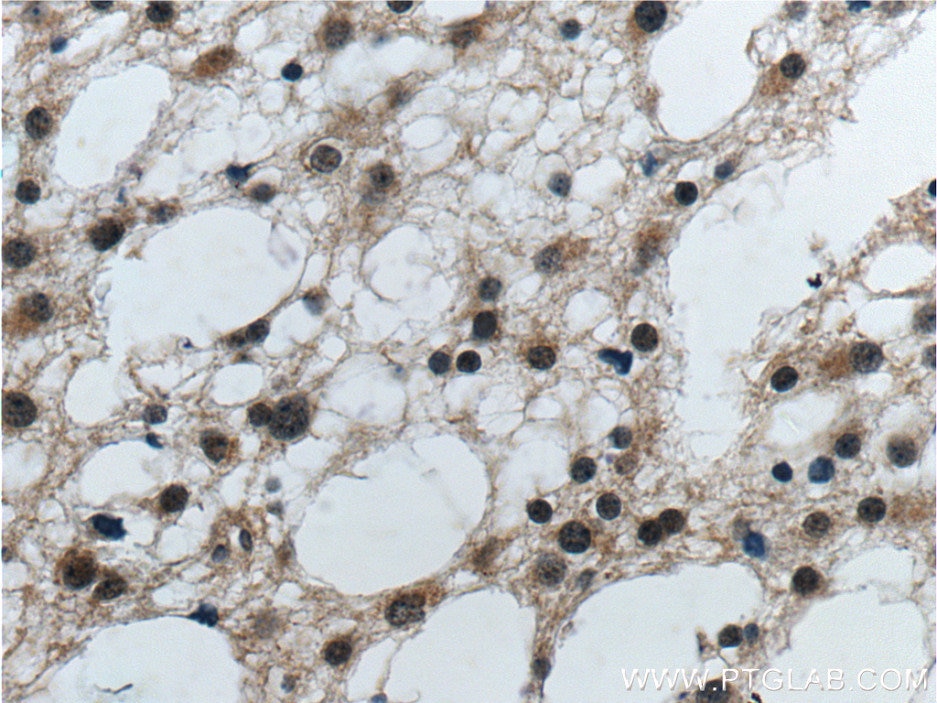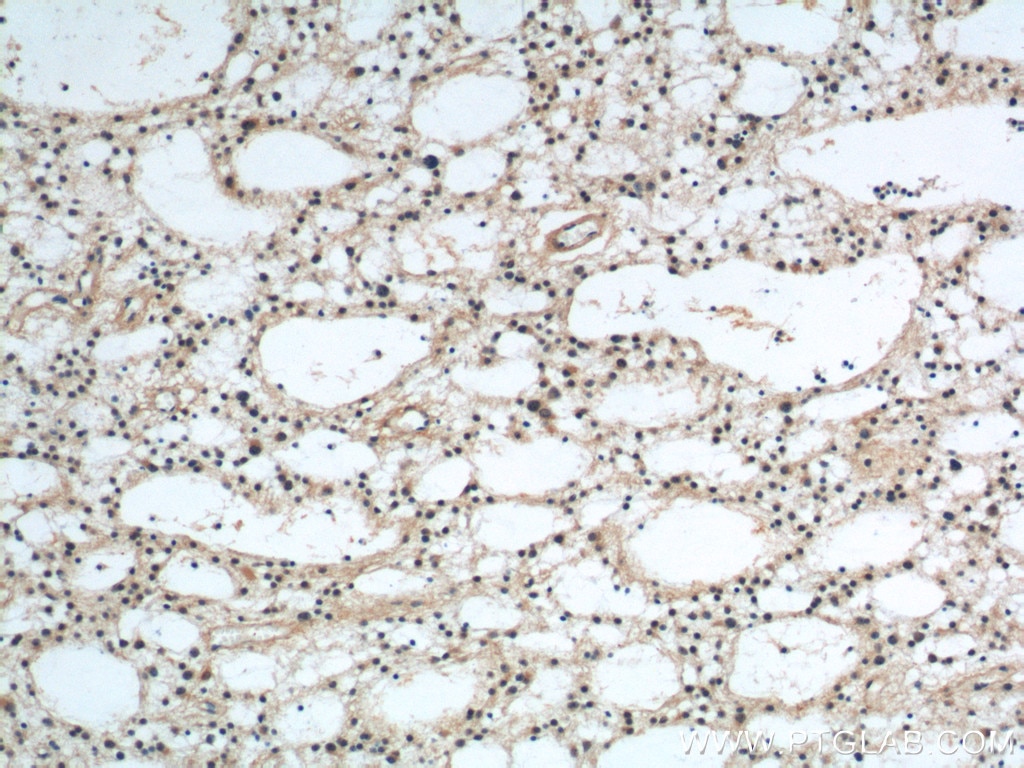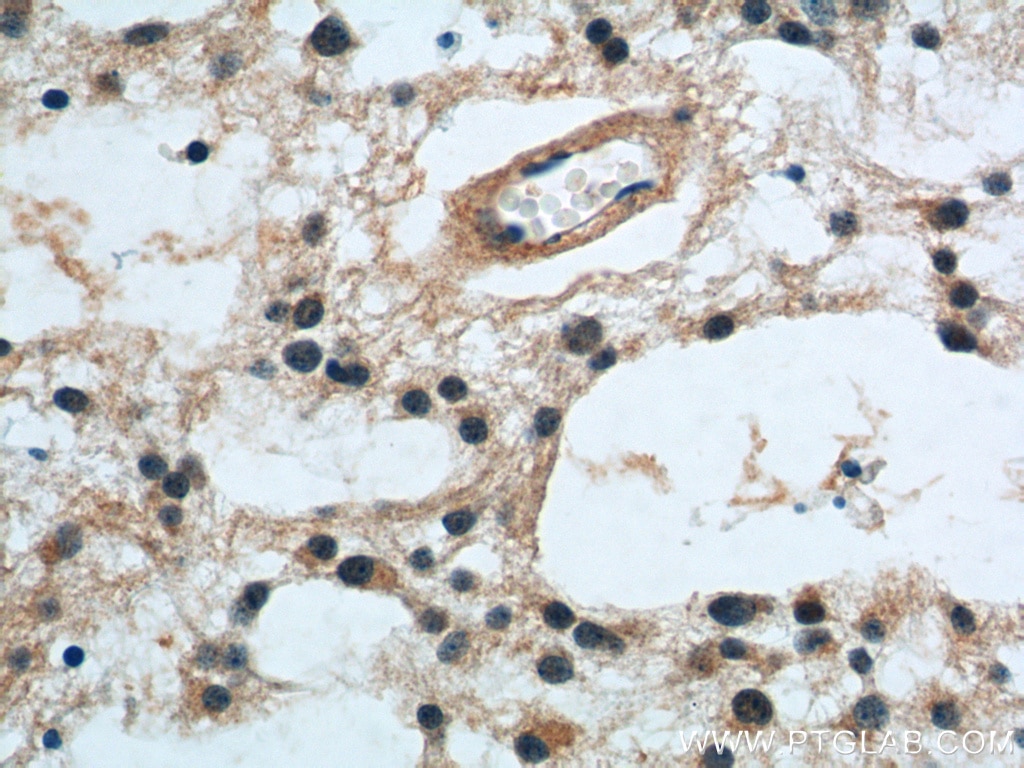Anticorps Polyclonal de lapin anti-Prion protein PrP/CD230
Prion protein PrP/CD230 Polyclonal Antibody for WB, IHC, IP, ELISA
Hôte / Isotype
Lapin / IgG
Réactivité testée
Humain, rat, souris
Applications
WB, IHC, IP, CoIP, ELISA
Conjugaison
Non conjugué
N° de cat : 12555-1-AP
Synonymes
Galerie de données de validation
Applications testées
| Résultats positifs en WB | tissu cérébral de souris, tissu cérébral de rat, tissu cérébral humain |
| Résultats positifs en IP | tissu cérébral de souris |
| Résultats positifs en IHC | tissu de gliome humain, il est suggéré de démasquer l'antigène avec un tampon de TE buffer pH 9.0; (*) À défaut, 'le démasquage de l'antigène peut être 'effectué avec un tampon citrate pH 6,0. |
Dilution recommandée
| Application | Dilution |
|---|---|
| Western Blot (WB) | WB : 1:500-1:2000 |
| Immunoprécipitation (IP) | IP : 0.5-4.0 ug for 1.0-3.0 mg of total protein lysate |
| Immunohistochimie (IHC) | IHC : 1:20-1:200 |
| It is recommended that this reagent should be titrated in each testing system to obtain optimal results. | |
| Sample-dependent, check data in validation data gallery | |
Applications publiées
| WB | See 8 publications below |
| IHC | See 2 publications below |
| IP | See 1 publications below |
| CoIP | See 1 publications below |
Informations sur le produit
12555-1-AP cible Prion protein PrP/CD230 dans les applications de WB, IHC, IP, CoIP, ELISA et montre une réactivité avec des échantillons Humain, rat, souris
| Réactivité | Humain, rat, souris |
| Réactivité citée | rat, Humain, souris |
| Hôte / Isotype | Lapin / IgG |
| Clonalité | Polyclonal |
| Type | Anticorps |
| Immunogène | Prion protein PrP/CD230 Protéine recombinante Ag3257 |
| Nom complet | prion protein |
| Masse moléculaire calculée | 34 kDa |
| Poids moléculaire observé | 30 kDa |
| Numéro d’acquisition GenBank | BC022532 |
| Symbole du gène | PrP |
| Identification du gène (NCBI) | 5621 |
| Conjugaison | Non conjugué |
| Forme | Liquide |
| Méthode de purification | Purification par affinité contre l'antigène |
| Tampon de stockage | PBS with 0.02% sodium azide and 50% glycerol |
| Conditions de stockage | Stocker à -20°C. Stable pendant un an après l'expédition. L'aliquotage n'est pas nécessaire pour le stockage à -20oC Les 20ul contiennent 0,1% de BSA. |
Informations générales
Prion protein (PRNP) is a ubiquitous membrane glycoprotein whose abnormal self-replicating, misfolded form is widely believed to cause several central nervous system disorders, collectively known as Transmissible Spongiform Encephalopathies (TSE). Prion diseases are TSEs, attributed to conformational conversion of the cellular prion protein (PrPC) into an abnormal conformer that accumulates in the brain. The two isoforms, PrPC and PrPS, have the same primary amino acid sequence and only differ in conformation. While PrPC is composed of 42% α-helix and only 3% β-sheet, PrPSc is composed of 30% α-helix and 43% β-sheet. PrPC converts to its pathogenic isoform when the region corresponding to the residues 108-144 fold into β-sheets. PrPC is very soluble in detergents and easily digested by proteases while the PrPSc is insoluble in detergents and resistant to protease digestion. Prion diseases exist in infectious, sporadic, and genetic forms.
Protocole
| Product Specific Protocols | |
|---|---|
| WB protocol for Prion protein PrP/CD230 antibody 12555-1-AP | Download protocol |
| IHC protocol for Prion protein PrP/CD230 antibody 12555-1-AP | Download protocol |
| IP protocol for Prion protein PrP/CD230 antibody 12555-1-AP | Download protocol |
| Standard Protocols | |
|---|---|
| Click here to view our Standard Protocols |
Publications
| Species | Application | Title |
|---|---|---|
Neuron Muskelin Coordinates PrPC Lysosome versus Exosome Targeting and Impacts Prion Disease Progression. | ||
PLoS Biol TMED9 coordinates the clearance of misfolded GPI-anchored proteins out of the ER and into the Golgi | ||
Front Mol Biosci Single-cell transcriptomics uncover the key ferroptosis regulators contribute to cancer progression in head and neck squamous cell carcinoma | ||
PLoS One Copper homeostasis-associated gene PRNP regulates ferroptosis and immune infiltration in breast cancer | ||
Mol Carcinog Inhibition of the RBMS1/PRNP axis improves ferroptosis resistance-mediated oxaliplatin chemoresistance in colorectal cancer | ||
Front Cell Dev Biol PRNP is a pan-cancer prognostic and immunity-related to EMT in colorectal cancer |
